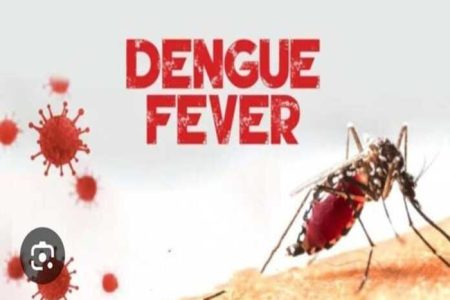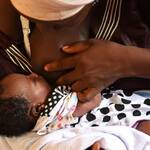Ghana has recorded nine cases of Dengue Fever in the Eastern Region.
This is after an unusual cases of clinical malaria were detected, which did not respond to antimalarial treatment, prompting further investigation.
Director General of the Ghana Health Service (GHS), Dr. Patrick Kuma-Aboagye, in an alert issued to Regional Health Directors, said the cases were confirmed at the Noguchi Memorial Institute for Medical Research (NMIMR) after samples were sent from patients exhibiting acute febrile illnesses.
Following this, a team comprising entomologists and epidemiologists has joined the regional team to conduct a detailed outbreak investigation.
The Director General in the alert also urged Chief Executives of Teaching Hospitals to disseminate the alert to all health workers within their regions and facilities, including mission and private establishments.
He said that step aimed to enhance surveillance and ensure all suspected malaria cases underwent laboratory confirmation.
The Director General advised health workers to be vigilant and adhere to the surveillance case definitions for Dengue Fever.
A suspected case is defined as any person with an acute febrile illness of 2-7 days duration accompanied by two or more of the following symptoms – headache, retro-orbital pain, myalgia, arthralgia, rash, hemorrhagic manifestations or leukopenia.
Dengue virus according to the World Health Organization is transmitted to humans through the bite of infected mosquitoes. Cases are most commonly asymptomatic or result in mild febrile illness.
Some cases will develop severe dengue, which may involve shock, severe bleeding or severe organ impairment.
The WHO says effective vector control interventions are key to the prevention and control of dengue and vector control activities should target all areas where there is a risk of human-vector contact, such as residences, workplaces, schools and hospitals.
Globally, over 7.6 million dengue cases have been reported to WHO as of 30 that April 2024, this comprised about 3.4 million confirmed cases, over 16 000 severe cases, and over 3000 deaths.
In Africa, from 1 January to 28 April, 13 countries were known to have ongoing active transmission of the dengue virus .
In Benin, Burkina Faso, Cape Verde, Côte d’Ivoire, Ethiopia, Kenya, Mali, Mauritania, Mauritius, Niger, São Tomé and Principe, Senegal, and the Seychelles, a total of 32 925 dengue cases were recorded, 14,095 confirmed, 1051 severe cases and 57 deaths reported.
The WHO says a circulation of three of the four dengue serotypes of the dengue virus DENV-1, DENV-2, DENV-3 has been identified in the WHO African region.
The current priority countries based on dengue burden are Burkina Faso, Mauritius and Mali.
Ghana records 9 cases of Dengue Fever in Eastern Region

Latest posts by Newscenta (see all)
